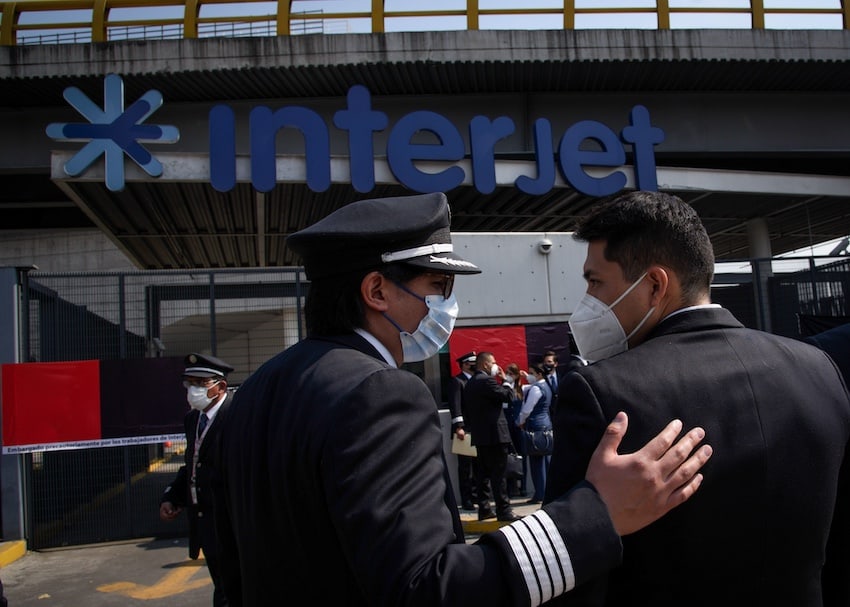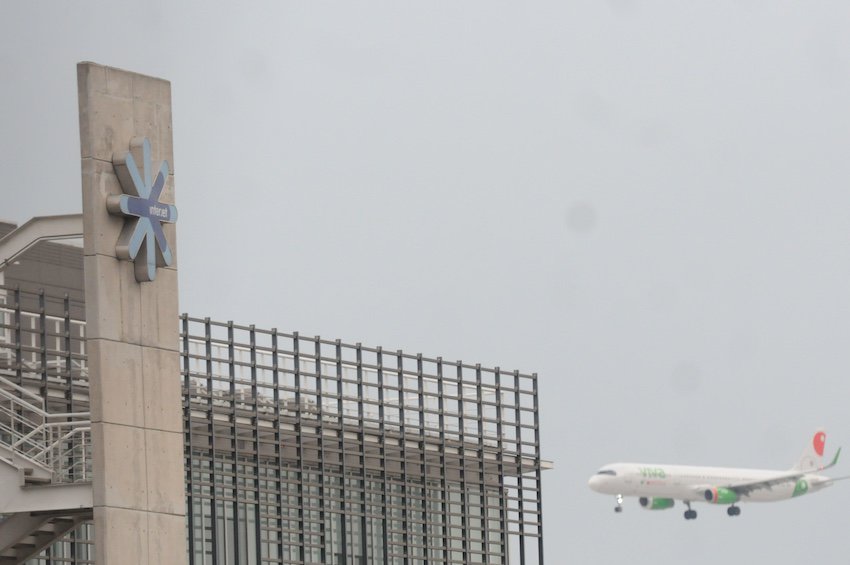Low-cost carrier Interjet could resume operations this year, according to the airline’s director and owner, Alejandro del Valle.
Del Valle, who has been charged twice over allegations of fraud relating to his businesses, has been continuously hopeful that Interjet will be able to resume operations since it shut down three years ago.

As a result of debts surpassing 40 billion pesos (US $2.3 billion) — including 144 million pesos (US $8.3 million) of compensation for flight cancellations and delays that occurred from 2018 to 2020 — the airline declared bankruptcy in April 2023.
In an interview with Forbes México, del Valle said that Interjet now has enough resources to pay its workers and reach an agreement with its creditors and Mexico’s tax authority (SAT).
According to del Valle, from October 2023 onwards, 352 million pesos (US $20 million) from card processors has been deposited in Interjet’s account (legally registered as ABC Aerolíneas) at Banco del Bienestar — an account controlled by the bankruptcy trustee.
In total, del Valle told newspaper Expansión that the company has accounts receivable worth over US $200 million.
However, del Valle said the bankruptcy trustee is the main obstacle to Interjet’s comeback. He claims the trustee hasn’t paid Interjet’s debts and has yet to approach the airline’s executives to begin negotiations with creditors.
Del Valle had expected the trustee to settle the debt owed to over 4,000 workers by the end of 2023. With the existing funds, Interjet’s management had planned to restart operations in March or April of this year.
However, del Valle claims the bankruptcy trustee used 4.5 million pesos (US $261,000) to pay his salary instead of paying the employees.
Julio Zugasti, an aviation specialist at Hogan Lovells, anticipates “a great challenge” to bring back Interjet this year, as it needs to “address its outstanding debts with workers, the treasury, and third parties,” he told newspaper Expansión.

By the end of 2020, shortly after del Valle took over the company, Interjet faced a multitude of problems — in addition to the impact of COVID-19, the low-cost airline encountered issues with increasing fuel costs, payroll, and unpaid taxes.
This week marked the third anniversary of the Interjet workers’ strike to demand payment of back wages and benefits. According to public company information, the debt owed to workers remains at approximately 1.8 billion pesos (US $100 million).
If Interjet were to resume operations this year, del Valle said that 70% of flights would initially depart from the Felipe Ángeles International Airport (AIFA) near Mexico City, 20% from Mexico City International Airport (AICM), and 10% from Toluca in the State of México.
The airline hopes to operate 37 routes initially, to destinations including Cancún, Guadalajara, Tijuana and Tulum.
With reports from Expansión, El Economista, El País, and Forbes México
